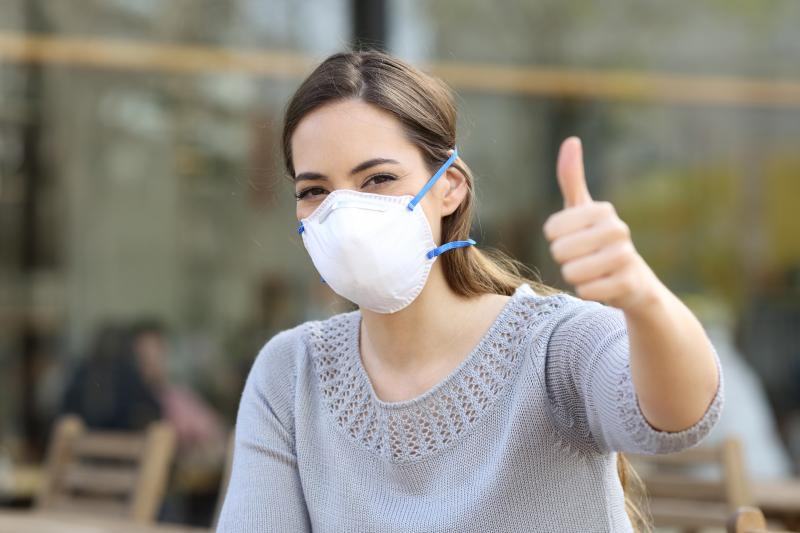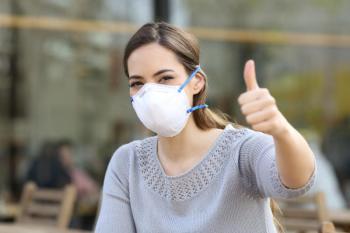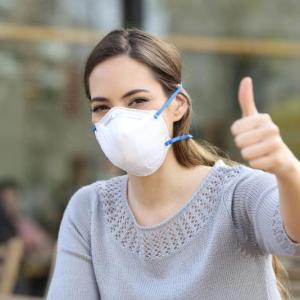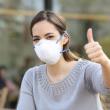Governor offers additional details on face masks, Phase I of Maine’s re-opening plan
Following her announcement Tuesday that she would extend Maine’s stay-at-home order, Governor Janet Mills today issued a “Stay Safer at Home” Executive Order, according to a news release.
The new order continues to have Maine people stay at home with the same established exceptions for permitted activities, such as occasional grocery shopping or exercising. However, it now also allows Maine people to visit businesses or participate in activities deemed safe to open under Stage 1 of the reopening plan presented Tuesday, per the release.
These include barber shops and hair salons, auto dealerships and drive-in stay-in-your-vehicle religious services that follow COVID-19 Prevention Checklists. The Order is effective immediately and extends through May 31, subject to change.
“Maine appears to be flattening the curve against this pandemic, saving lives and protecting public health. But we are not out of the woods yet,” said Governor Mills. “This measure allows us to gradually restart our economy, allows us to do the same things we have been doing over the past month, and maintains the important public health measures that have protected us thus far. I believe in Maine people more than anything. Although this has been a long and difficult road for our state, I know that together, we will continue to do the right thing to protect one another and defeat this virus.”
Additionally, and as Governor Mills also announced Tuesday, the order requires Maine people to wear cloth face coverings in public places where physical distancing is difficult to maintain, as recommended by the U.S. CDC.
The order identifies public settings as: indoor spaces that are accessible to the public such as grocery stores, retail stores, pharmacies and health care facilities; outdoor spaces such as playgrounds, busy parking lots, and other areas such as lines for take-out service where the public typically gathers in a smaller area; and public transportation such as a taxi, Uber, Lyft, ride-sharing or similar service; ferry, bus, or train; and any semi-enclosed transit stop or waiting area.
Under the order, cloth face coverings are not required for children under age 2, a child in a child care setting, or for anyone who has trouble breathing or related medical conditions, or who is otherwise unable to remove the mask without assistance. This requirement is effective Friday, May 1.
Governor Mills is encouraging Maine people to make their own cloth face coverings from common materials or to purchase them from a Maine-based company to support local businesses.
The Maine Manufacturing Extension Partnership has compiled a list of Maine companies producing face coverings, which the Administration is sharing with Maine people as a resource.
“As our State begins to ease some restrictions as part of the plan to gradually and safely restart the economy, it is important for Maine people to also take individual precautions to prevent the spread of the virus. Ultimately, this is about protecting our communities. By wearing a cloth face covering, you are taking an important step in protecting others, and when others wear them, they are taking an important step in protecting you,” said Governor Mills.
The U.S. CDC advises the use of cloth face coverings in public settings, such as grocery stores or pharmacies, to slow the spread of COVID-19.
Recent research indicates that a significant portion of individuals with COVID-19 do not experience symptoms, and that those who go on to develop symptoms can transmit the virus to others before feeling sick.
While a cloth face covering is not intended to protect the wearer, it may prevent the spread of virus from the wearer to others.
However, cloth face coverings are no substitute for physical distancing and other recommendations, as described below. Cloth face coverings can be made at home from common materials.
In a recent video, U.S. Surgeon General Dr. Jerome Adams described how to fashion and wear a simple cloth face covering. Additional instructions on cloth face coverings are available via U.S. CDC here.
“Face coverings can help keep people with COVID-19 from spreading it to others,” said Dr. Nirav D. Shah, Director of the Maine Center for Disease Control and Prevention. “Wearing a face covering when out in public can complement physical distancing as part of a strategy to limit the risk of exposure during a gradual reopening.”
Under a new contract, the State of Maine has purchased 27,500 cloth face coverings, enough to provide two to each state employee, produced by Maine-based company American Roots. Starting May 14, American Roots will provide approximately 4,000 coverings per week. Distribution will be via individual department. State employees whose roles require other types of personal protective equipment will also receive these cloth face coverings. The Department of Administrative and Financial Services is also distributing a supply of disposable masks to staff who work outside the home and/or interact with others as part of their job duties.
“The Department of Administrative and Financial Services has direct responsibility to ensure the safety and wellness of our state government employees,” said Kirsten Figueroa, the Department’s Commissioner. “We’re thrilled to contract with a Maine company that shifted its operations during this pandemic to provide these cloth face coverings to our workforce.”
Cloth face coverings are distinct from surgical or N-95 masks, which should be reserved for health care workers and first responders. When removing a cloth face covering, people should avoid touching their eyes, nose, and mouth and then wash their hands immediately.
As described in U.S. CDC guidance, a cloth face covering covers the nose and mouth and fits snugly but comfortably against the side of the face; is secured with ties or ear loops; includes multiple layers of fabric; allows for breathing without restriction; and is able to be laundered and machine dried without damage or change to its shape.
Cloth face coverings are not a replacement for adhering to physical distancing protocols.
Even when wearing a cloth face covering, maintaining six-feet physical distancing remains critical to slowing the spread of COVID-19. Governor Mills also continues to encourage Maine people to practice proper hygiene, including washing hands often with soap and warm water.
Event Date
Address
United States

























